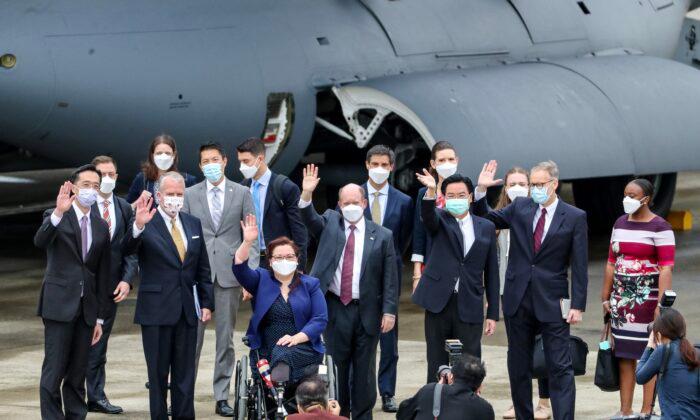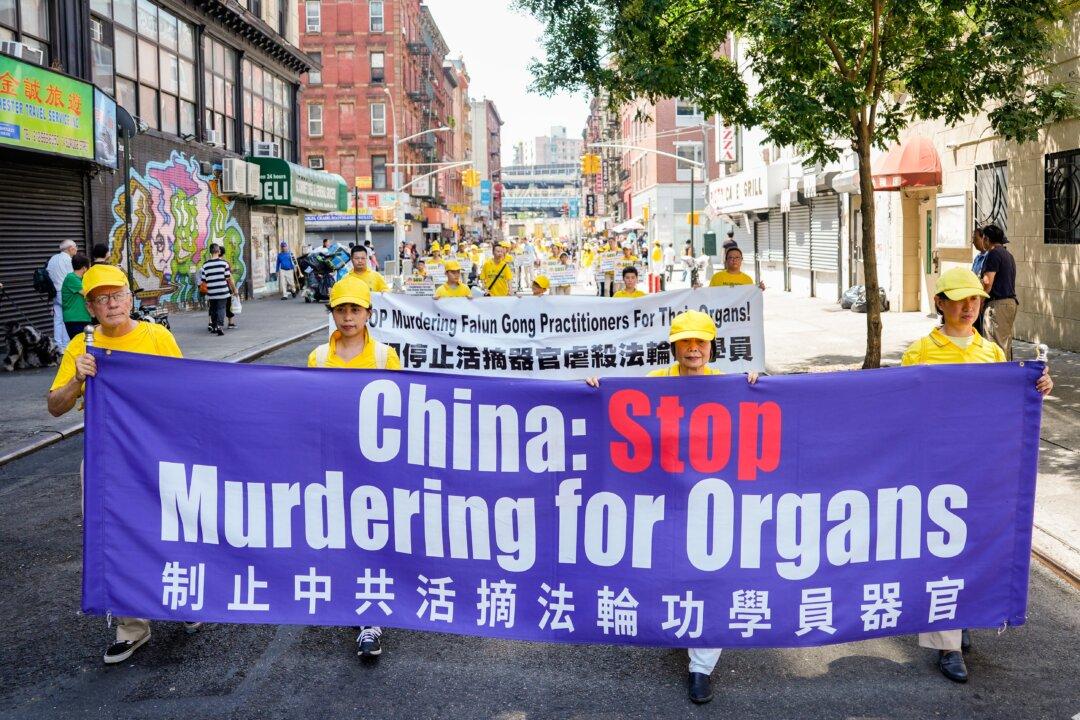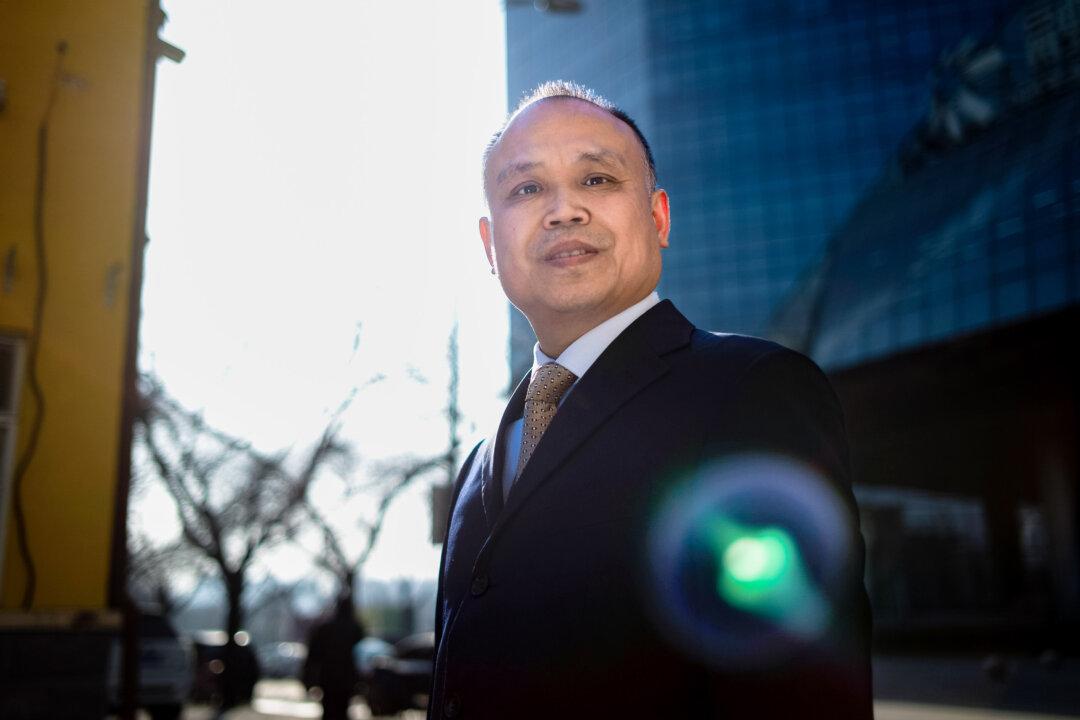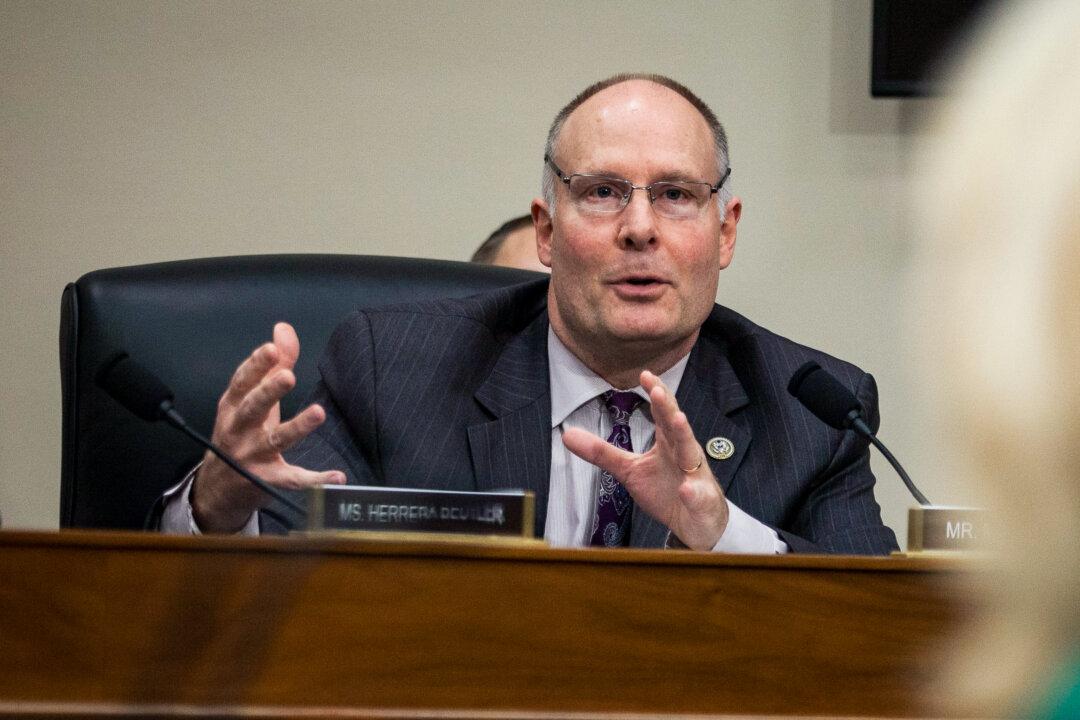Beijing recently ramped up its warmongering rhetoric against its democratic neighbor Taiwan, following a recent visit by three U.S. senators to the self-ruled island.
Two days after the senators’ trip, on June 8, the Eastern Theater Command of China’s People’s Liberation Army (PLA) announced on its WeChat account that its 72nd Group Army recently held a military exercise in the waters off the coast of southern China’s Fujian Province. The exercise, involving landing ships and ambitious vehicles, was aimed at improving the unit’s amphibious abilities.
Also on June 8, Wu Qian, a spokesperson for China’s Ministry of National Defense, told local media that the senators’ trip to Taiwan was a “political show” and a “vile political provocation” against China. Wu also accused the United States of “seriously undermining” the stability of the Taiwan Strait.
Without naming any country, Wu threatened that anyone who dared to “split Taiwan from China” would see a “resolute attack head-on” from the Chinese military.
In an article published on June 9, China’s hawkish mouthpiece Global Times claimed that any PLA exercise should not be seen as merely a “deterrence move.” In fact, Beijing was preparing to win “any possible military conflicts in the future.” The same article also boasted China’s ever-increasing amphibious warfare capability.
The Chinese Communist Party (CCP) sees Taiwan as a part of its territory despite the fact that the self-ruled island is a de-facto independent country—with its own democratically-elected government, military, constitution, and currency.
As a result, Beijing opposes any government from establishing ties with Taipei or interacting with Taiwanese government officials.
“Americans are allowed to travel to #Taiwan whenever they want and the #CCP has no control or right dictating to a US Congressional delegation visiting the country,” she wrote.






Friends Read Free